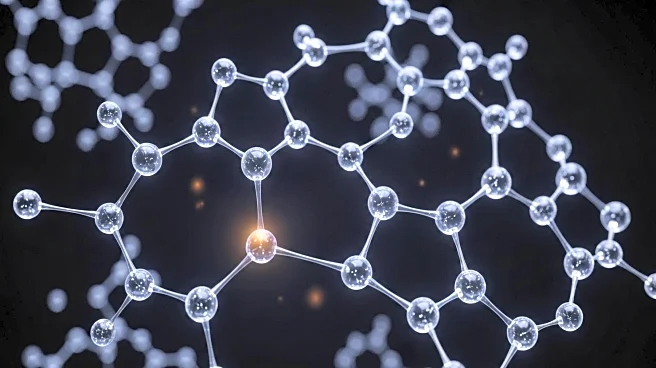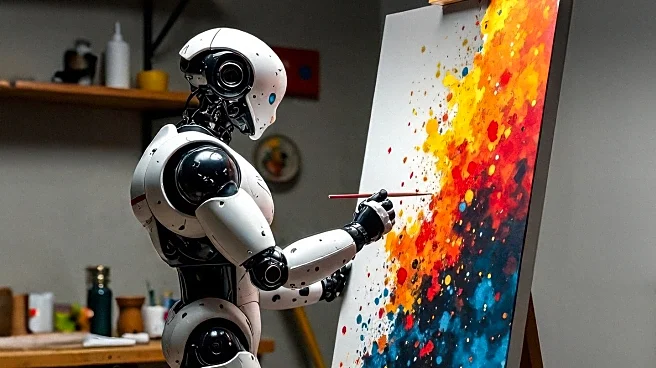What is the story about?
What's Happening?
Researchers at the University of Pennsylvania have developed an artificial intelligence system named AMP-Diffusion, designed to generate antimicrobial peptides. These peptides are small proteins that organisms naturally use to fight infections. The AI system can design new peptides, screen them for safety, and identify variants as potent as FDA-approved drugs in animal experiments. The research team, led by Pranam Chatterjee and César de la Fuente, utilized a diffusion model AI to create 50,000 potential antimicrobial peptides. The system was trained on a large database of natural proteins, allowing it to generate a vast number of potential candidates for testing.
Why It's Important?
The development of AMP-Diffusion is significant in the fight against antibiotic resistance, a growing global health threat. Traditional antibiotics are becoming less effective as bacteria evolve resistance, making new solutions critical. The AI-generated peptides offer a novel approach, attacking bacteria in ways that are harder for them to resist. This could lead to new classes of antibiotics, providing doctors with more options when traditional treatments fail. The efficiency of the AI system also means that drug discovery could be significantly accelerated, reducing the time and cost associated with bringing new antibiotics to market.
What's Next?
The researchers plan to refine and scale up the AMP-Diffusion system, potentially adapting it to design peptides for other medical conditions, such as cancer or viral infections. The success of this AI approach could revolutionize drug discovery, offering a faster and more cost-effective method for developing new treatments. As antibiotic resistance continues to rise, the ability to quickly generate new antibiotics could be crucial in maintaining effective healthcare systems worldwide.
Beyond the Headlines
The use of AI in drug discovery represents a shift towards more innovative and efficient methods in medical research. By leveraging AI, researchers can explore chemical spaces beyond what is naturally available, potentially leading to breakthroughs in various fields of medicine. This approach not only addresses current challenges in antibiotic resistance but also opens the door to new possibilities in treating a wide range of diseases.
















